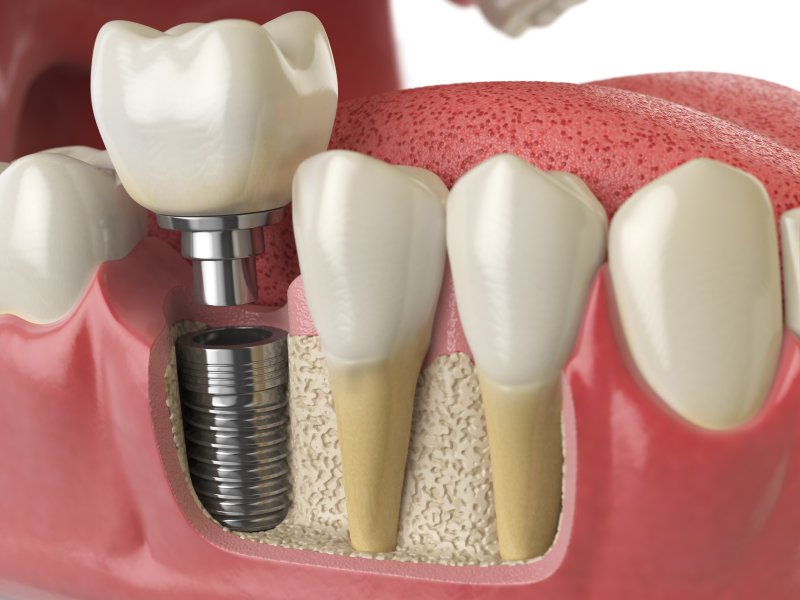A Guide to Dental Implant Terms You Should Know
June 16, 2021

Are you ready to replace your missing teeth with dental implants? The first step on your journey is a consultation with your dentist. The purpose of this initial visit is to determine whether you’re a good candidate for implants. However, your dentist or oral surgeon may use some completely unfamiliar words. Luckily, we’ve put together a guide of dental implant terms you should know to help you understand exactly what’s going on.
Abutment
An abutment is a connector that the dentist builds onto, or attaches, to the top of a dental implant. It serves as the attachment for the replacement tooth, crown, or bridge and keeps it firmly in place.
Abutment Teeth
Abutment teeth support a bridge or partial denture. The bridge is attached to the abutment tooth during a full crown or inlay/onlay prep. On the other hand, a partial denture is supported by clasps or rests on the abutment tooth.
Ceramic
This is the material that’s used to make dental implants. It’s made of clay and hardened by heat before being placed in your mouth. Some people prefer ceramic over titanium because it offers a more natural-looking appearance. It’s also available in ivory so it closely resembles existing teeth and roots.
Crown
A crown, also known as a cap, replaces a single tooth. It’s often used to replace a broken or lost tooth as a result of infection, decay, injury, or other oral health problem. The crown is typically fitted over the top of existing teeth or attached to the abutment of a dental implant.
Dentures
Dentures are the most traditional method of tooth replacement. However, most patients don’t have the same success with them as they do with implants. Some can be removed daily for cleaning and storage, while others are attached permanently to the mouth (i.e., implant-supported dentures).
Endosteal Implant
It is the most common type of implant used by dentists today. To fit this implant, your dentist will place small screws, plates, blades, or cylinders into the jawbone during a surgical procedure to hold at least one prosthetic tooth.
Implant
A dental implant, or a fixture, is a medical device that interfaces with the jawbone to support a dental prosthesis, like a bridge, crown, or denture. The implant fuses with the bone through a process called osseointegration, providing long-lasting and durable results.
Osseointegration
This process allows the implant to fuse with your jawbone, improving the strength between the bone and the load-bearing implant. The term osseointegration comes from Greek and Latin words meaning “bone” and “to make whole”.
Subperiosteal Implant
This type of implant sits on the top of the jaw. The post of the metal framework protrudes through the gum, holding the prosthetic tooth (or teeth) in place. If a patient can’t use a denture, the dentist may use this method for attaching an implant.
Titanium
Most modern dental implants are made of titanium, a lightweight but strong metal that can ossify with the jawbone. This metal has become widely used since very few people are allergic to it.
Zirconia
Zirconia is an alternative metal used for a small percentage of patients who are allergic to titanium. Since the risk of bacteria is lower, patients may experience better gum health with zirconia. It’s also white, so it closely resembles natural teeth.
Now, you can understand the language your dentist uses to explain the dental implant process. The more you know about implants, the better prepared you will be for your journey towards a gorgeous new smile!
About the Author
Dr. Steven E. Amburgey has helped patients achieve and maintain healthy smiles for over 15 years. After graduating from WVU Dental School, he pursued continuing education to keep his clinical skills up to date. Dr. Amburgey can help restore your smile and confidence with dental implants. To schedule a consultation, visit our website or call (276) 258-5568.
No Comments
No comments yet.
RSS feed for comments on this post.
Sorry, the comment form is closed at this time.
